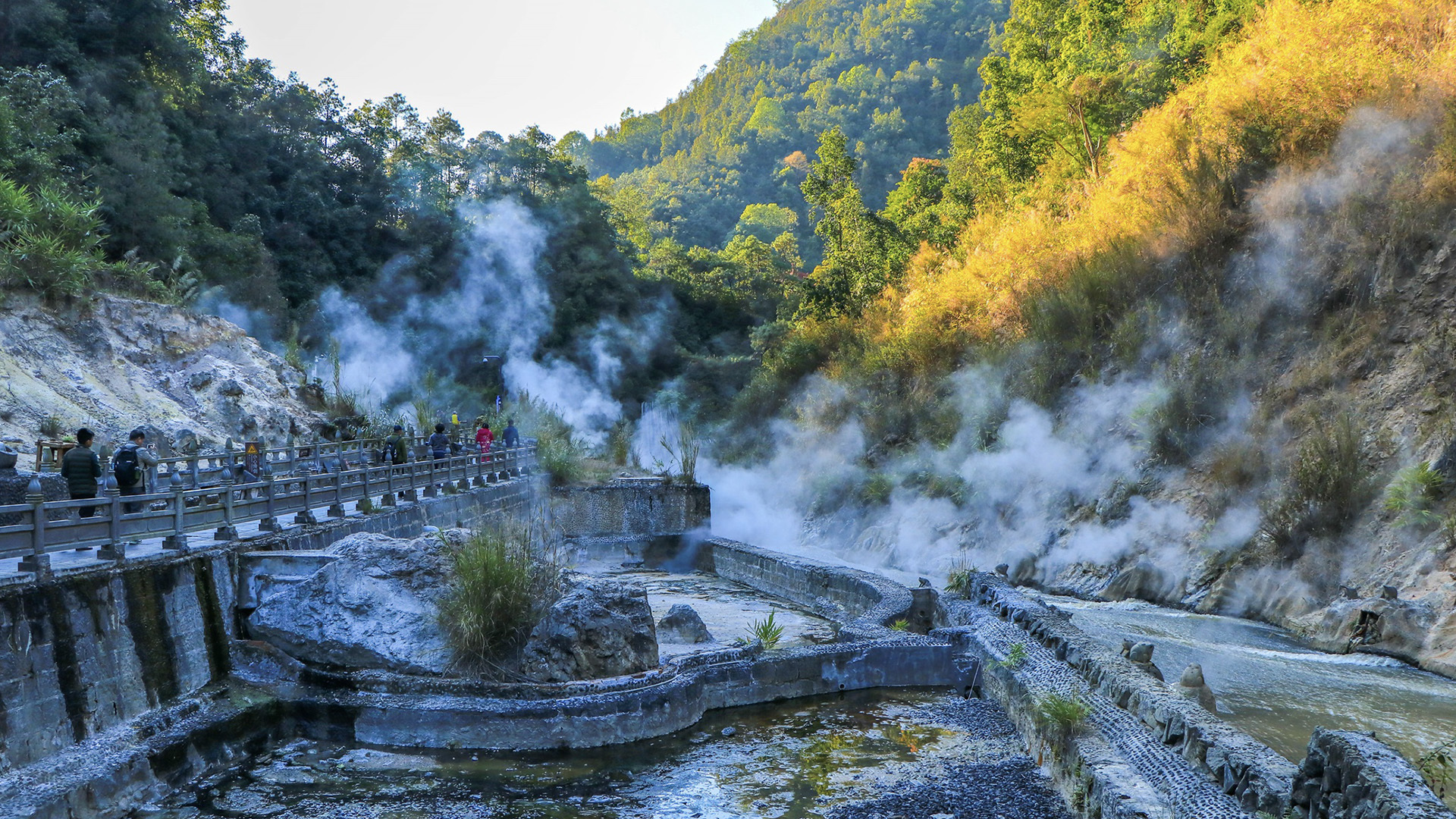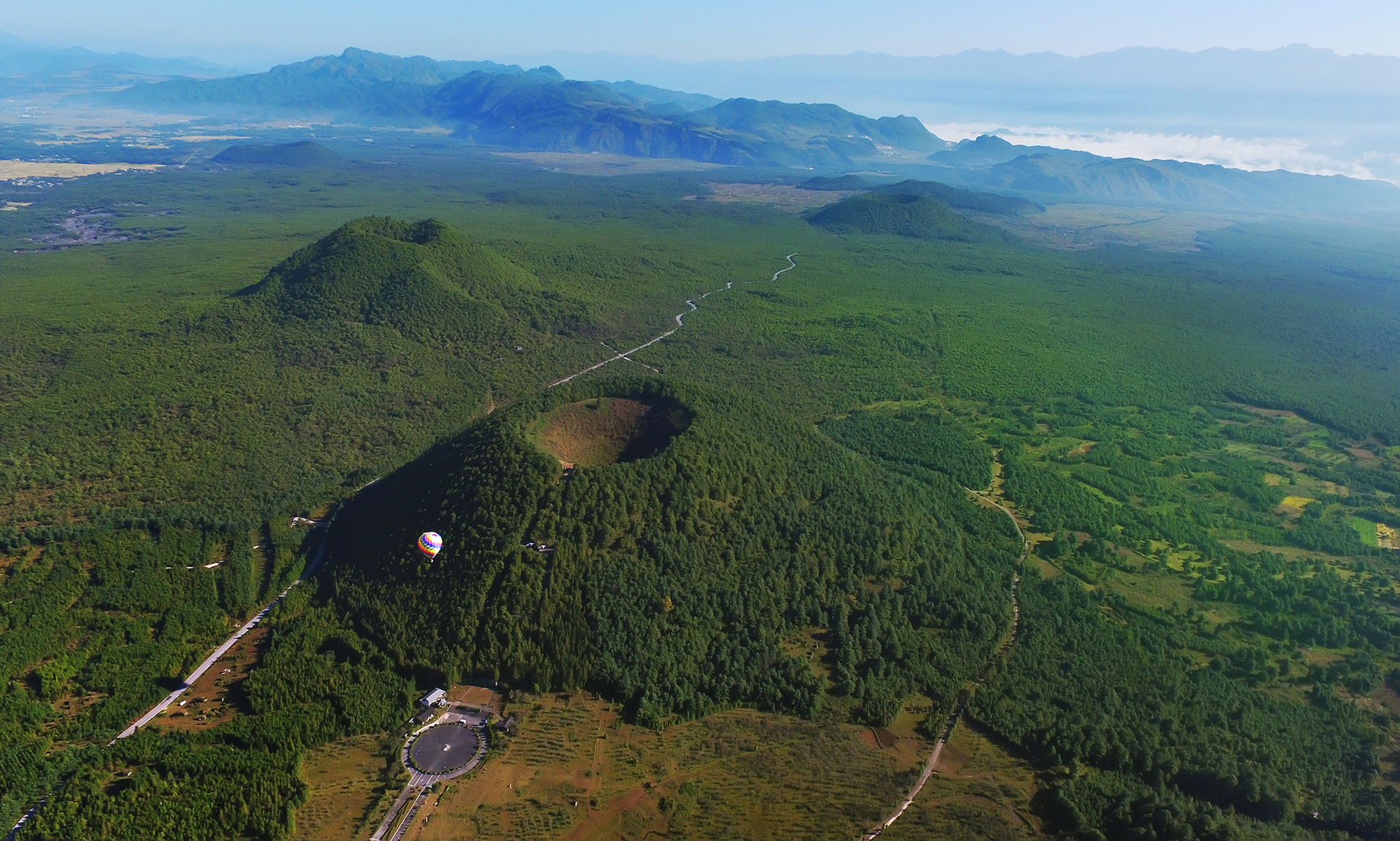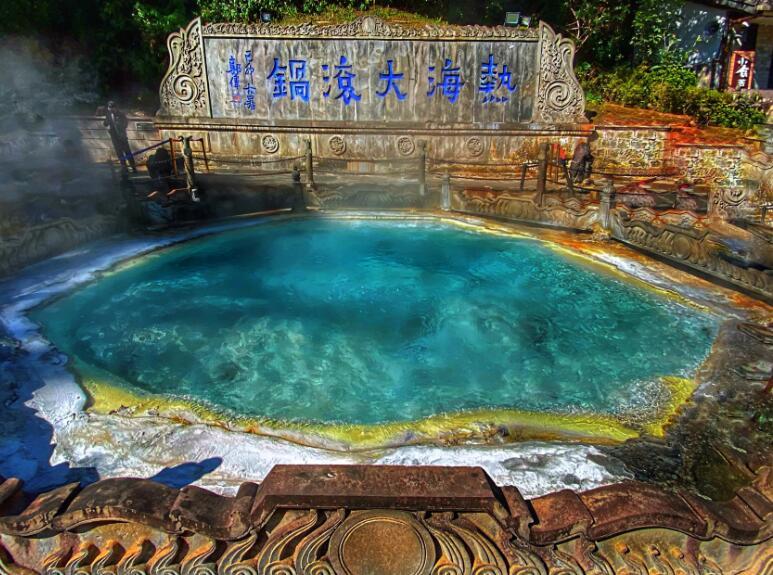Tengchong Tourism
Tourist attractions in Tengchong include: the ancient town of Heshun, the volcanic hot sea, the Beihai wetlands, the Great Rolling Pot, the Folded River Waterfall, the National Gothic Garden, the scenery of Baoshan, the Gaoligong Mountain, the Yunyan Buddha Pagoda, the Jiale Buddha Pagoda, the Ruili Border Trade Street, and the Ruili Daying River.
Heshun Overseas Chinese Township
Heshun Ancient Town, a national AAAA tourist attraction, is located 4km southwest of Tengchong County and is a famous overseas Chinese township in Yunnan. The population of the township is less than 6,000, while the number of overseas Chinese living in Heshun is 10,000, spread over 13 countries and regions. Although it is located in the south-west, Heshun has a strong Jiangnan water village flavour. The main attractions include the former residence of Ai Siqi, the Heshun Library, the Bending House Folk Museum, the Liu Family Compound, the Liu Clan Ancestral Hall, the Shuanghong Bridge and the Laundry Pavilion.
Volcano Group National Park
"A good Teng Yuezhou, nine of the ten mountains are headless." The best place to climb the volcanic wonders of Tengchong is Xiaokong Mountain in the Volcano Group National Park. The mountain is wooded and has a truncated cone-shaped head, with slag, pumice and volcanic bombs visible everywhere from the summit down to the base of the crater, which is 47 metres deep. Another of the wonders of Tengchong Volcano Park is the magical and spectacular columnar joints, especially those in the Blackfish River Gorge, which are truly a masterpiece of nature's art.
Hot Sea Scenic Area
Tengchong Hot Sea is located 20 kilometres southwest of Tengchong County, covering an area of about 9 square kilometres. There are more than 80 large gas springs and hot spring groups, 10 of which have water temperatures of over 90°C. Hot springs can be seen spouting everywhere. There are many places in the world with hot springs, but it is rare to find such a wide area and as many springs as Tengchong Hot Sea. Tengchong is one of the three largest geothermal zones in China, with high geothermal temperatures, high steam and strong hydrothermal activity, which are rare in China. There are 88 boiling springs, gas springs, geysers and hot spring groups in the territory, each of which has a number of hot water and hot gas outcrops, among which is the hot sea located in the centre of the county's geothermal zone. Its landscape, water temperature and gushing volume are the highest in the county, and it has the reputation of being one of the most important attractions in the national geothermal volcanic scenic spot. The most typical of the hot sea is the "big rolling pot". It has a diameter of more than 3 metres, a depth of 1.5 metres, and a water temperature of 96.6°C. It tumbles and boils day and night, and steams with heat in all seasons. In the bathing pond river, there is a geological fracture and a large river crossed to form a cascading and roaring waterfall, below which a dozen hot springs and steam springs spurt out day and night, mingling with water vapour and steaming like smoke and mist. A number of sanatoriums and bathhouses have been built at Atami, and a number of recreational facilities have been set up, with visitors coming daily for tourism and treatment.
Beihai Wetland
Tengchong Beihai Wetland Reserve, located 12.5 km northwest of the county, is one of the first 33 national key wetlands announced by the state in December 1994, and the only national wetland reserve in Yunnan province. The protected area covers an area of 16.29 square kilometres, with a North Sea area of 0.46 square kilometres, including a water surface area of 0.14 square kilometres and a sea row area of 0.32 square kilometres. The North Sea Wetland Reserve is surrounded by mountains on all sides, with a special geographical location, and is a highland volcanic weir ecosystem, with a large area of land floating on the water; it is like a giant carpet of colourful flowers, with complex biodiversity and high productivity. .
National Cemetery
The National Cemetery is located 1 km southwest of Tengchong County, Yunnan Province, under the small group of slopes on the banks of the Zishui River. It is a memorial cemetery for the fallen soldiers of the 20th Chinese Expeditionary Army Tengchong Recapture War during the resistance in western Yunnan. Mr Li Gen, a patriot and a veteran of the Xinhai Revolution, took the name of the chapter of the Chinese dictionary "National Elegy" and entitled it "National Elegy Cemetery".
Fushui River Waterfall
It originates from the Daying River in the northeastern part of Tengchong County and belongs to the Irrawaddy River system, along which many streams converge and the water volume gradually increases. When it flows through the ground about two kilometres west of Tengchong County, it encounters a huge faulted cliff. Three peaks rise up beside the cliff, standing shoulder to shoulder, and the water comes out of the left gorge, plunging 46 metres down into a deep pool at the head of the cliff, before continuing to rush forward. Here, the river seems to be folded in two, so it is commonly known as the "Stacked Waterfall".
Esch Memorial Hall
Ai Siqi Memorial Hall: Ai Siqi (1910-1966), formerly known as Li Shengxuan, was a famous modern philosopher in China. In his youth, he wrote two books, "Popular Philosophy" and "Philosophy and Life", which guided countless young people onto the road to revolution.
2023 National Digital Literacy and Skills Enhancement Month campaign promotional video
2023-05-22
Announcement of the suspension of the opening of Volcano View
2023-05-18
Historical and Cultural City - Tengchong
2023-05-08










